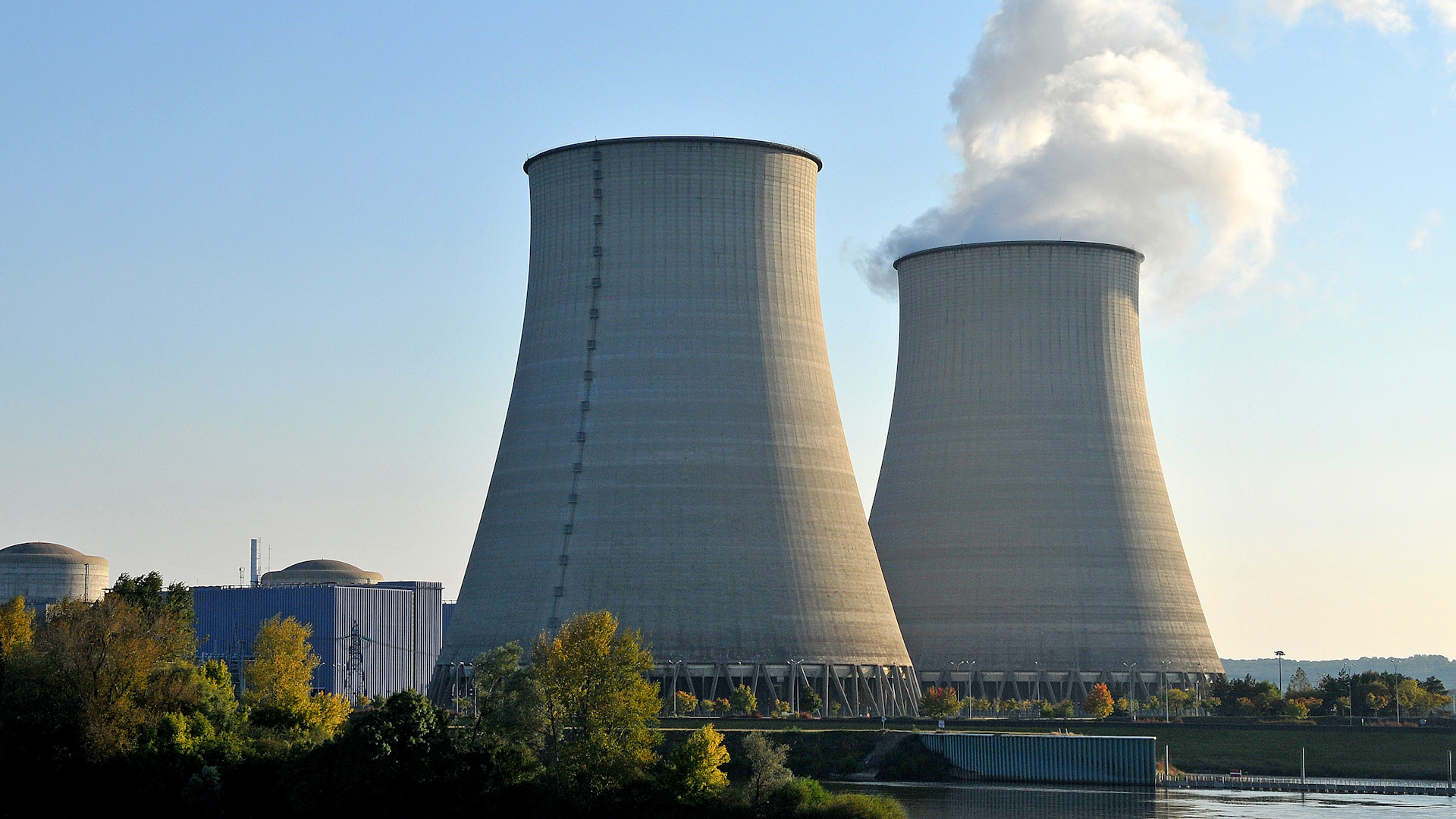
Google invests in SMRs as more tech companies go nuclear for energy needs
By Jack Aylmer (Energy Correspondent), Jack Henry (Video Editor)
Google has announced a new agreement to purchase power from small modular reactor (SMR) developer Kairos Power. The tech giant’s decision signals a growing trend among technology companies turning to nuclear power as a solution for the escalating energy demands of data centers, which are critical for supporting artificial intelligence (AI) operations and cryptocurrency mining.
Media Landscape
See how news outlets across the political spectrum are covering this story. Learn moreBias Distribution
Left
Right
Untracked Bias
Data centers rapidly expanded in recent years, with energy requirements sometimes reaching the level of a small city. This demand for a continuous, reliable power supply has led companies to explore nuclear energy, which offers around-the-clock availability that other renewable sources, such as wind and solar, cannot consistently provide.

Download the SAN app today to stay up-to-date with Unbiased. Straight Facts™.
Point phone camera here
In addition to Google, companies like Microsoft and Amazon have recently secured nuclear power deals to keep their data centers operational and meet ambitious sustainability goals.
“We believe that nuclear energy has a critical role to play in supporting our clean growth and helping to deliver on the progress of AI,” Michael Terrell, senior director for energy and climate at Google, said. “The grid needs these kinds of clean, reliable sources of energy that can support the build out of these technologies. We feel like nuclear can play an important role in helping to meet our demand, and helping meet our demand cleanly, in a way that’s more around the clock.”
Google’s agreement with Kairos Power involves purchasing electricity from multiple small modular reactors, with the company indicating that it is open to further investments in this energy source. The tech company stated that the purchase would “send an important demand signal to the market,” potentially encouraging further development of nuclear power technologies.
Get up to speed on the stories leading the day every weekday morning. Sign up for the newsletter today!
Learn more about our emails. Unsubscribe anytime.
By entering your email, you agree to the Terms & Conditions and acknowledge the Privacy Policy.
Small modular reactors are viewed as a promising alternative to traditional large-scale nuclear facilities, offering potential advantages in cost and efficiency. While conventional nuclear plants often face delays and budget overruns, SMRs are designed to be easier to construct and operate. However, there are currently only three operational SMRs worldwide, none of which are located in the United States.
Google plans for the first reactor from this deal with Kairos Power to come online by 2030, with additional reactors expected to be operational by 2035.
GOOGLE IS SENDING A MESSAGE TO NUCLEAR POWER DEVELOPERS-
THEY WANT MORE OF THIS ENERGY.
TECH COMPANIES LOOKING TO UTILIZE NUCLEAR REACTORS FOR THEIR POWER NEEDS HAS BEEN A BIT OF A TREND LATELY-
THE RAPID EXPANSION OF DATA CENTERS, WHICH SUPPORT AI OPERATIONS AND CRYPTOCURRENCY, IS DRIVING THIS NEED-
WITH THESE FACILITIES IN SOME CASES REQUIRING A SMALL CITY’S WORTH OF ENERGY AROUND THE CLOCK-
MAKING NUCLEAR THE CHOICE OVER OTHER RENEWABLES WHICH ARE UNABLE TO PROVIDE THE CONSTANT STREAM OF POWER NEEDED.
AS A RESULT, COMPANIES LIKE MICROSOFT AND AMAZON HAVE MADE RECENT DEALS WITH NUCLEAR POWER PROVIDERS TO KEEP THEIR DATA CENTERS RUNNING.
NOW GOOGLE IS ALSO JOINING THE PACK-
PURCHASING ELECTRICITY FROM SMALL MODULAR REACTOR DEVELOPER KAIROS POWER.
AT THE SAME TIME THE TECH GIANT IS SIGNALING ITS OPEN TO MAKING ADDITIONAL INVESTMENTS IN THIS ENERGY SOURCE.
GOOGLE SAYING IN A STATEMENT THAT THIS PURCHASE WILL SEND AN IMPORTANT DEMAND SIGNAL TO THE MARKET.
SMALL MODULAR REACTORS ARE SEEN AS A CHEAPER AND MORE EFFICIENT WAY TO INCREASE ENERGY CAPACITY THEN LARGER TRADITIONAL NUCLEAR FACILITIES.
BUT, CURRENTLY THERE ARE ONLY THREE SMRS OPERATING AROUND THE WORLD-
AND NONE OF THOSE ARE IN THE U.S.
GOOGLE SAID THE FIRST REACTOR WILL BE ONLINE BY 2030, WITH MORE REACTORS GOING LIVE THROUGH 2035.
TO GET MORE STORIES ABOUT THE RELATIONSHIP BETWEEN THE TECH AND ENERGY SECTORS, DOWNLOAD THE STRAIGHT ARROW NEWS APP AND SIGN UP FOR ALERTS FROM ME – JACK AYLMER.
Media Landscape
See how news outlets across the political spectrum are covering this story. Learn moreBias Distribution
Left
Right
Untracked Bias
Straight to your inbox.
By entering your email, you agree to the Terms & Conditions and acknowledge the Privacy Policy.
MOST POPULAR
-
 Getty Images
Getty Images
Judge allows CNN lawsuit potentially worth billions to continue
Read14 hrs ago -
 Reuters
Reuters
It’s a bird, it’s a plane, it’s the first video of Alef Aeronautics’ flying car
Watch 2:1316 hrs ago -
 Getty Images
Getty Images
Democrats in Congress receive lowest approval rating in Quinnipiac poll history
Watch 2:5917 hrs ago -
 Getty Images
Getty Images
AG Bondi reviewing Epstein documents for release, could hold client list
Watch 1:4817 hrs ago




